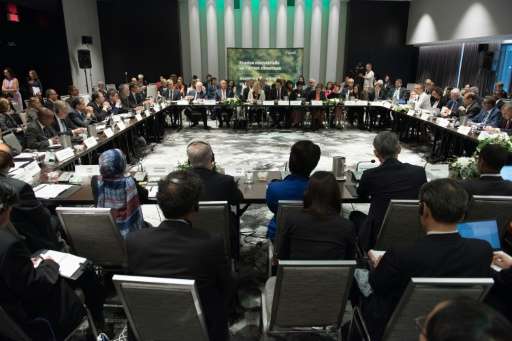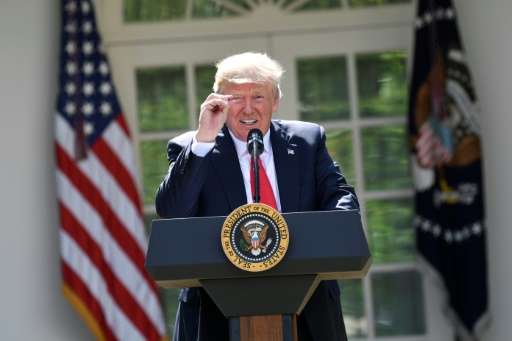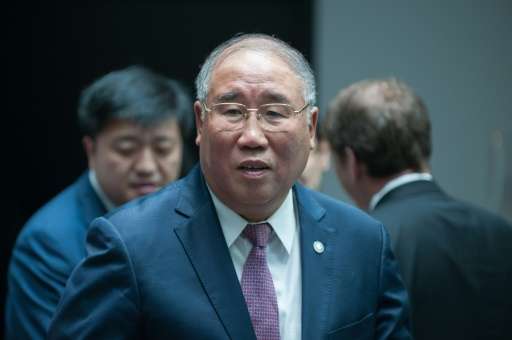Time ticking as nations meet on Paris climate deal

Environment ministers from some 30 countries gathered Saturday in Montreal to push forward on implementing the Paris climate accord without the United States, three months after President Donald Trump walked out on the deal.
Called by Canada, China and the European Union, the summit was taking place 30 years to the day after the signature of the Montreal Protocol on protecting the ozone layer—which Canada's environment minister hailed as a multilateral "success story" by governments, NGOs and ordinary citizens jointly tackling a major global threat.
"We have an opportunity to accomplish even more with the Paris agreement," Catherine McKenna said as she opened the summit, attended by more than half the G20 members as well as some of the nations most vulnerable to climate change—from the low-lying Marshall Islands and Maldives to impoverished Mali and Ethiopia.
"Changes are real, extreme weather events are more frequent, more powerful and more distressful," she told the gathering, pointing at the devastation wrought by mega-storms such as Harvey and Irma which many climate scientists believe are boosted by global warming.
"We are here together and we need to act together," the Canadian minister said.
Nearly 200 countries agreed in Paris in December 2015 to curb carbon dioxide emissions with the aim of limiting the rise in average global temperatures to 1.5 degrees Celsius by 2050, compared to preindustrial levels.

When Trump decided in June to withdraw the United States from the climate accord, Canada, China and the European Union immediately reaffirmed their respective commitments to the pact, which the Group of 20 declared "irreversible" the following month.
But time is ticking, the EU's top climate official Miguel Arias Canete told AFP, as ministers work to narrow their differences and better understand how to implement the ambitious accord—with less than two months to go until the next UN Conference on Climate Change (COP23), in Bonn in November.
Fossil fuel bans
"This is not a bureaucratic discussion," Canete said ahead of the Montreal gathering. "This is a political discussion with people who have in mind the target of the agreement."
"We need a rule book to be able to monitor and verify and compare emissions of all the parties and see how far we are towards the targets," he said, with a goal of having those rules in place in time for the COP24 meeting in Katowice, Poland in late 2018.
Key player China—the world's largest car market—brings to the table a potentially major advancement in transportation after announcing its intention to ban petrol and diesel cars, following decisions by France and Britain to outlaw their sale from 2040.

The European Union—which is targeting a 40 percent cut to its emissions by 2030—will also shortly put forward a proposal to member states on slashing carbon emissions in the transportation sector, European Commission President Jean-Claude Juncker said this week.
And Canada—as the world's sixth-largest oil producer—insists it is "committed to its international climate obligations" which it hopes to reach by massively investing in "clean energy" technologies.
China's special representative to the talks, Xie Zhenhua, said Beijing considers the Montreal Protocol to be a "very effective and efficient" example of multilateral action on the environment—largely because it rested on a broad consensus.
"We should take actions now," Xie said, "to ensure that we can realize the goals that we have set."
"The key issue is how we should combine climate actions with economic growth, the protection of people and job creation," he added.
"If we can combine all these matters we could make Paris agreement a great success."
© 2017 AFP




















